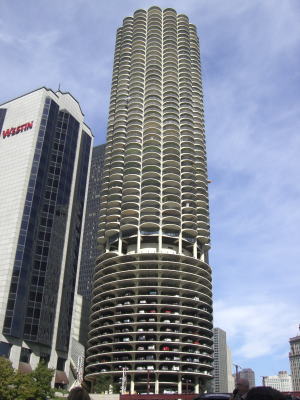
Will raising taxes on parking help alleviate Chicago's budget deficit?
Taxing goods and services with inelastic demand is the most efficient way for the government to raise tax revenues. Therefore the biggest question regarding this policy is: how elastic is the demand for parking? A study done by Wilson and Shoup (1990) argues that parking demand is relatively inelastic for irregular visits (i.e. tourists) but parking costs have a significant impact on the mode of transportation chosen by regular visitors (commuters). Given the high costs (gas prices) of traveling by car today, it seems to me that the majority of 'consumers' of parking are regular visitors--thus the demand for parking is more elastic than Mayor Daley of Chicago thinks. So not only will this measure fail to raise tax revenue, it has already substantially angered the public.

No comments:
Post a Comment